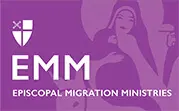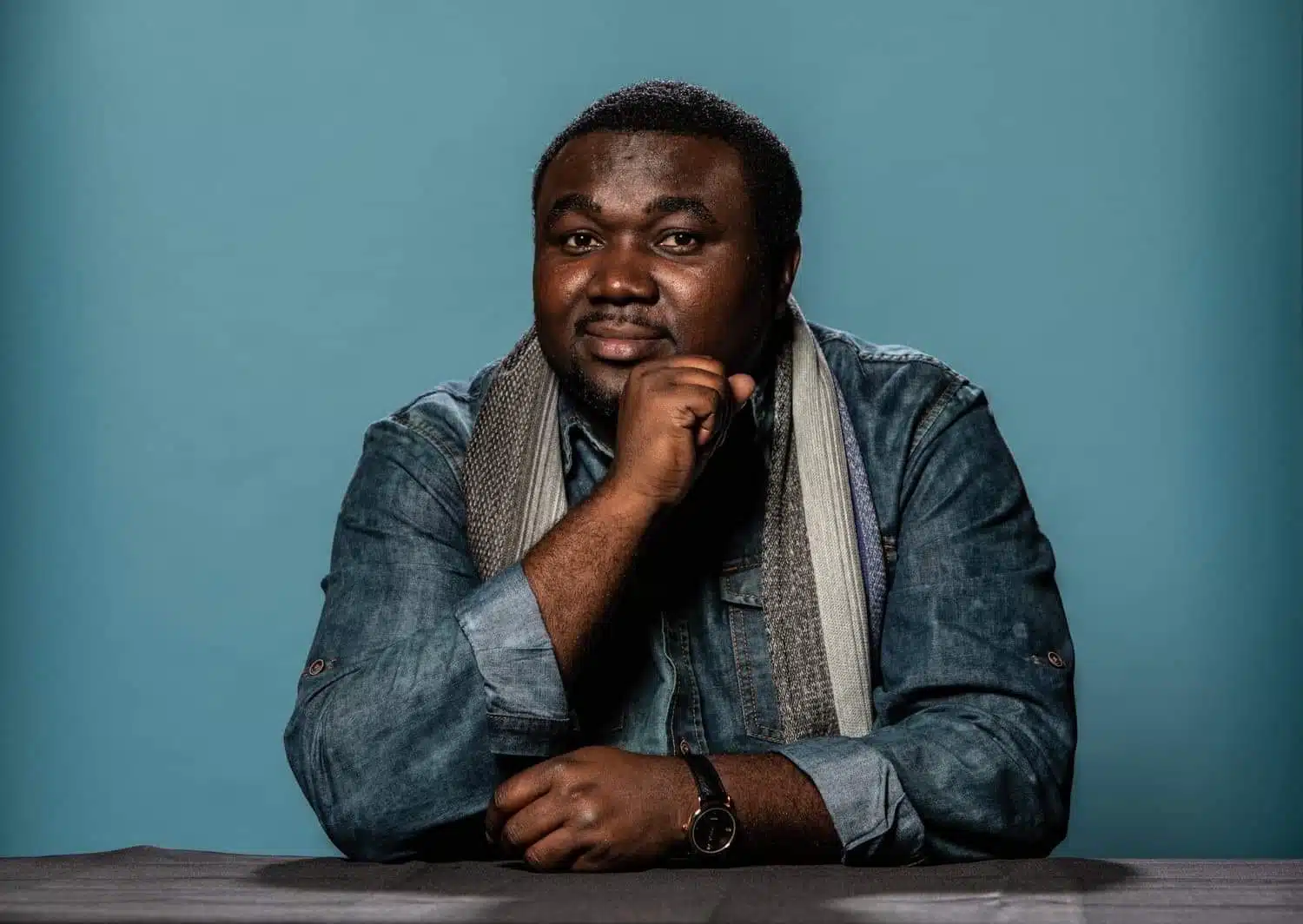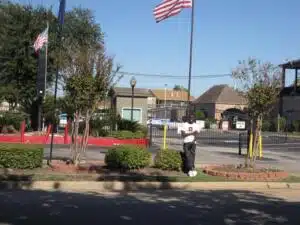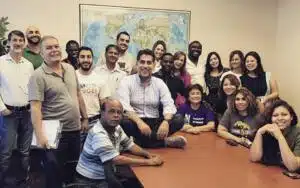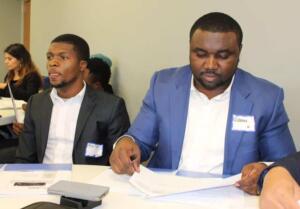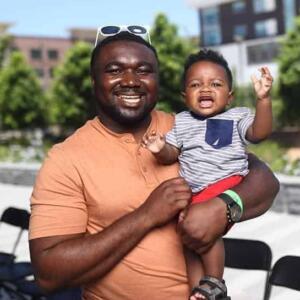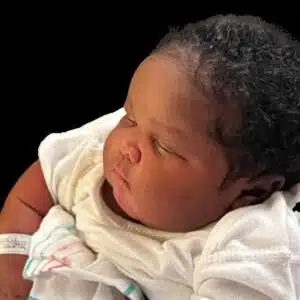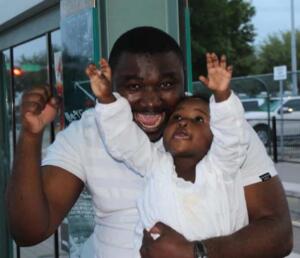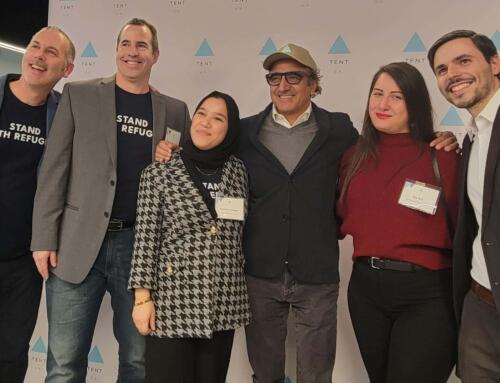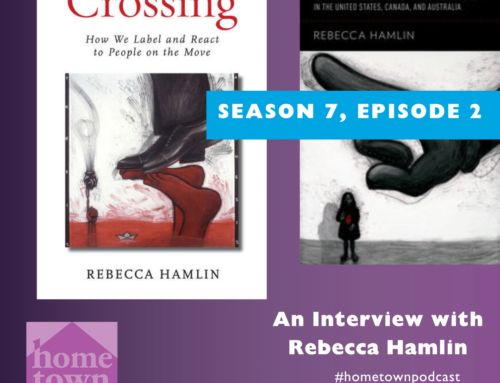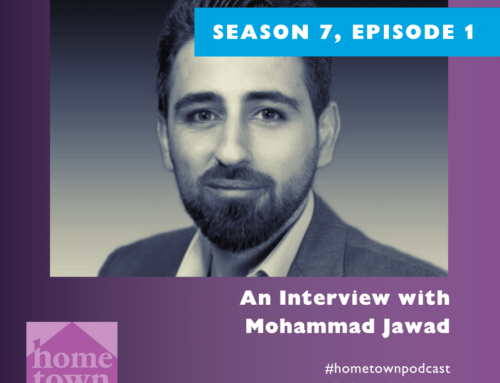This is Part 3 of Salemu’s story. Read Part 1 and Part 2.
After years of living with relentless adversity and dire threats to their safety, the Alimasi family – a multigenerational group of 17 adults and children – were finally recognized as refugees. They entered the U.S. in September 2011, flying from Uganda to Houston, Texas, where they were resettled through an organization affiliated with the US Catholic Conference of Bishops’ (USCCB) Migration and Refugee Services, one of ten national refugee resettlement agencies in the U.S. The Alimasi clan were housed in two apartments in the same complex, one for the young men and one for the patriarchs and children. Within their first week, they had joined a local church attended by other Africans.
In September 2011, Salemu was 21 years old. As a Congolese citizen forced to live in refugee camps, his youth had been marked by family separation, fear, and endemic violence, as well as the joy of making music and participating in vibrant faith communities. His formal education had been interrupted repeatedly, and arriving in the United States, he had hoped to be able to attend college. However, as he quickly discovered, not only were the fees for community college far too expensive, but given his age and relative health, he was expected to work full-time to contribute to the overriding goal of economic self-sufficiency. He was the first of his family to find paid employment in the U.S.
Salemu’s work history reflects both the challenges often faced by refugees and their resilience and drive. His first job was on the assembly line for Foxconn, a company that manufactures electronic components. Given the poor pay and mind-numbing conditions, Salemu told himself, “I can do better than this!” He was soon promoted to a testing unit, where again, he quickly mastered the challenges and felt the limits. Before long, he had secured a job as a caseworker for the USCCB affiliate that had resettled his family.
Given their skills in languages other than English, literate refugees are often hired by resettlement agencies, particularly in roles where they work directly with clients. The fact that they have experienced forced displacement and resettlement makes them both empathetic and effective role models for new arrivals. After working for the USCCB organization for a year or so, Salemu took a part-time job as a driver for Interfaith Ministries of Greater Houston (IMGH), one of EMM’s affiliates, and in 2013, became a full-time caseworker for IMGH.
The staff at refugee resettlement organizations like Interfaith Ministries of Greater Houston is intentionally composed of people from diverse backgrounds who speak a wide variety of languages, including many who have lived experience of forced displacement.
Salemu explains that what he liked most about being a caseworker was that he “could be the person holding other people’s hands, the person on the front line, showing others what to do.” He enjoyed not only explaining key processes to newcomers – such as how to get work authorization documents, look for a job, and move up in the workplace – but also being an advocate for them.
When he and clients encountered bureaucratic responses (such as an application for food stamps being refused due to a blurry photocopy of a passport), he was prompt to remind staff that they were there to serve people who deserved to be treated with respect and recognition of their full humanity. “Imagine you had only 25 seconds to leave your home!” he says. “Would you be able to escape with your life and bring every piece of paperwork with you?”
Salemu’s interest in advocacy only grew over time. In 2019, he helped found the Congolese and African Community Center, an organization that empowers refugee youth by helping them better understand their cultures of origin, while they navigate the challenges of living in the U.S. Recognized as an effective speaker and a natural leader, Salemu was also repeatedly invited to share his story, including on visits to the Texas statehouse and the U.S. Senate on World Refugee Day in 2019. That same year, the Houston Symphony presented “Resilient Sounds,” a musical performance inspired by the stories of several refugees, including Salemu.
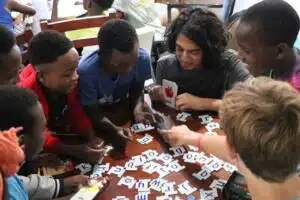
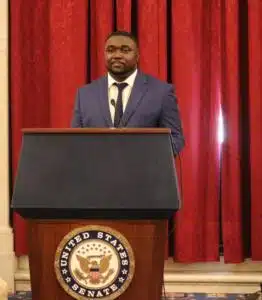
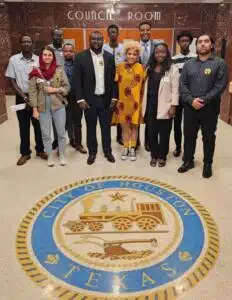
In tandem with his professional trajectory, Salemu’s adulthood in the U.S. has been marked by several personal milestones. He and his wife, Nancy, were married on September 5, 2015. Nancy is also Congolese (from “what we call ‘the Big DRC’,” explains Salemu, or the part of the country closer to the capital of Kinshasa), and they met through their church in Houston. Their family has grown over time with the birth of three children, two girls and a boy, all under the age of six, all learning their parents’ first languages of Swahili and Lingala, as well as English. Salemu and his wife are grateful that their children have the chance to live and grow in safety in the U.S. while they are still connected to Congolese culture through their extended family and the diverse communities of greater Houston.
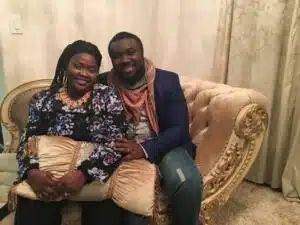
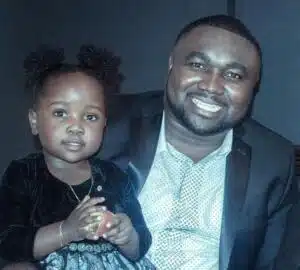
As Salemu raises his children, reflects on his own path, and continues to organize and advocate for refugees in the United States, his perspective is increasingly clear. As a former refugee and caseworker, he knows that while the core services provided by resettlement agencies through federal funding last for only 90 days, “real integration” takes much longer. It requires stamina, support, and engagement from a range of community groups.
Yet what refugees and other displaced people need most are opportunities. As Salemu puts it,
We come to the U.S. with our whole self: our abilities, our strengths, and a culture that shapes us. We are human, resilient, and creative. You can rely on us. Let us show you what we can do!
Through his story – of terror and joy, adversity and resilience, fear and faith, abject isolation and the power of community – Salemu Alimasi, like countless other refugees, has in fact shown us what he can do, and how much better off our society is, because of his presence.
For those of us who have never known the misery, trauma, or deep loss that people forced to flee their homes face, it is our responsibility to listen to these stories and the people who courageously share them. It is our job to welcome and wholeheartedly support our brothers and sisters who seek refuge amidst the abundance and relative safety that many in the U.S. take for granted. It is not only our responsibility but also our privilege to welcome and to help integrate people who bring individual strengths and cultural lessons that our society so desperately needs, especially when it comes to our mutual interdependence.
For this and for so much more, we thank Salemu Alimasi, the generations who raised him “in the soil of Congo” and whose tenacity brought him to the United States, and the communities of refugees who strengthen and enrich cities and states across the U.S. and around the world. Like Salemu, we see joy, promise, and hope in these communities and in the multilingual, multicultural gifts of the newest generation who now take root in our midst. Thank you, Salemu, for sharing your story, the truths, and the strengths of your experience, so that we too may grow into our full potential as human beings and neighbors.
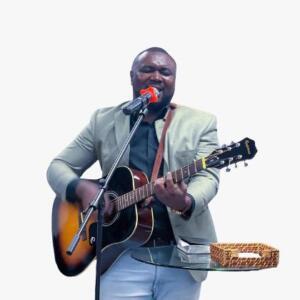
Do you have or know someone who has a story to share? Please reach out to “Refugee Voices” series co-editors, Janet Morford and Kendall Martin.
